Select Language
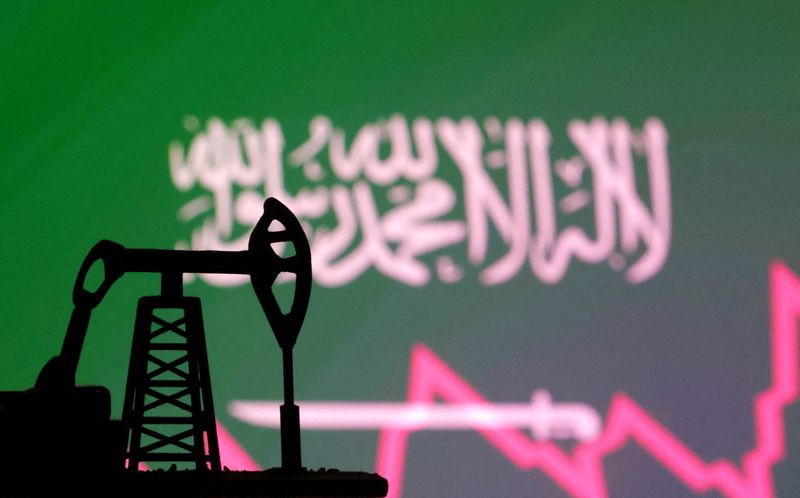
By Anant Chandak
BENGALURU (Reuters) - Economic growth in Saudi Arabia will accelerate next year thanks to higher oil output after two years of modest performance, according to a Reuters poll of economists, who also forecast robust growth for other Gulf Cooperation Council (GCC) states.
The Organization of the Petroleum Exporting Countries and allies led by Russia, known as OPEC+, has been curbing oil output since late 2022 but is expected to increase production in December, likely boosting revenues for the six GCC countries.
Crude oil prices are expected to remain broadly weak and average $76.75 per barrel next year, up from around $74.8 currently, according to a separate Reuters poll. [O/POLL]
Saudi Arabia, the world's largest exporter of crude oil, is reportedly preparing to abandon its unofficial target of reaching $100 per barrel. This will allow the kingdom to reverse past production cuts and increase market share, which along with non-oil revenue growth, will help drive faster economic growth.
The Oct. 9-22 Reuters poll of 21 economists forecast the Saudi economy would expand 4.4% in 2025, the fastest in three years, and up from an expected 1.3% this year.
The GCC economies were forecast to expand an average 4.1% next year, up from the 3.7% expected in a July poll and faster than the 1.8% growth projected for 2024.
"We expect the effects of lower oil prices and higher production volumes (to) largely (offset) each other. Since growth is focusing on produced volumes, real GDP growth will still benefit and accelerate in 2025 relative to 2024," said Ralf Wiegert, head of MENA economics at S&P Global Market Intelligence.
Prominent economies in the region, Saudi Arabia, the United Arab Emirates, and Qatar, have been exploring ways to diversify from relying on oil as their main revenue source, with many economists predicting the growth rate in non-oil GDP will be largely in line with oil GDP next year.
"However, oil revenues will play a critical role for all of the three economies. Even in the long-term outlook, non-oil revenues will be unable to replace oil revenues," Wiegert said.
The UAE economy is expected to be the fastest growing in the region at 4.9% next year, up from 3.7% in 2024. Qatar economic growth is projected to accelerate to 2.7% in 2025, up from 2.1%.
"The UAE's economy will be the star performer in terms of economic growth in 2025. If OPEC+ is set to open the taps up, the UAE will stand to gain more as it has had its base oil output quota raised twice without being able to take advantage of that," said James Swanston, economist at Capital Economics.
"Qatar and the UAE are further along in their diversification efforts and are better placed in a world approaching peak oil demand. In particular, UAE has a much larger non-oil economy and, exemplified by Dubai, is able to sustain tourism, financial services, and not rely as much on oil."
In the rest of the GCC, growth expectations for Bahrain, Kuwait and Oman for next year are projected at 2.8%, 2.5% and 2.8%, respectively, versus 2.8%, -1.3% and 1.6% in 2024.
Inflation, which has remained stable in the region, is poised to stay subdued with median forecasts ranging from 0.8% to 3.0% for this year and next.
(Other stories from the October Reuters global economic poll)
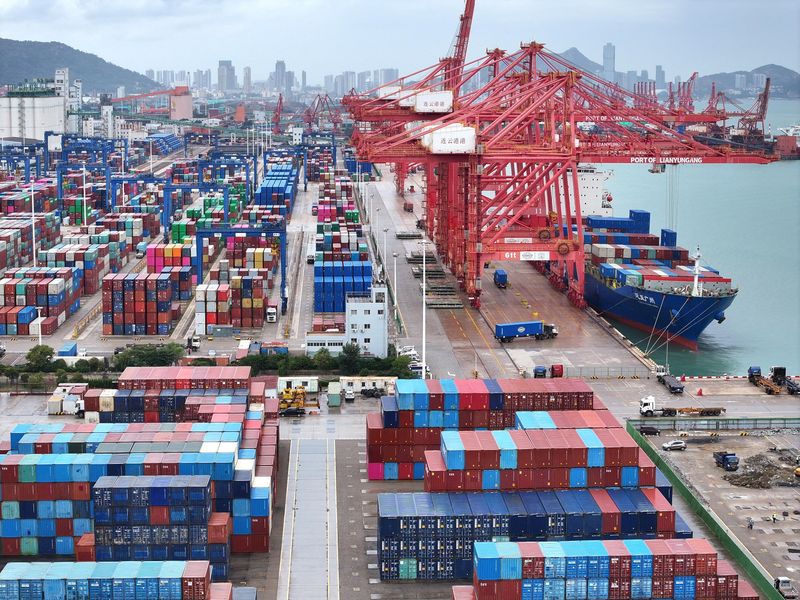
By David Kirton, Casey Hall and Ellen Zhang
GUANGZHOU, China (Reuters) - If Donald Trump wins next month's U.S. presidential election, Mike Sagan's toy-making company will halve its China supply chain within a year.
KidKraft, which also makes outdoor play equipment, had already shifted 20% of its production out of China to Vietnam, India and elsewhere after Trump introduced 7.5%-25% tariffs in July 2018, midway through his first term.
Now Trump threatens blanket 60% tariffs on China, which Sagan sees as a game-changing "blunt" tool.
He expects Kamala Harris to be less aggressive, but still likely to keep confronting China on trade.
"The writing is on the wall that it's going to be difficult," said Sagan, vice-president for supply chains and operations at KidKraft. The firm has reduced its Chinese suppliers to 41 from 53 at the start of this year.
"Question is: is it going to be extremely difficult or just difficult?"
The tariff threat alone is rattling China's industrial complex, which sells goods worth more than $400 billion annually to the U.S. and hundreds of billions more in components for products Americans buy from elsewhere.
Of the 27 Chinese exporters with at least 15% of sales to the U.S. Reuters spoke with, 12 were planning to accelerate relocation if Trump returned to the White House. Four others, still fully in China, said they would open factories overseas if Trump raised tariffs. The other 11 had no specific plans around the election result, but most expressed concern they might lose U.S. market access.
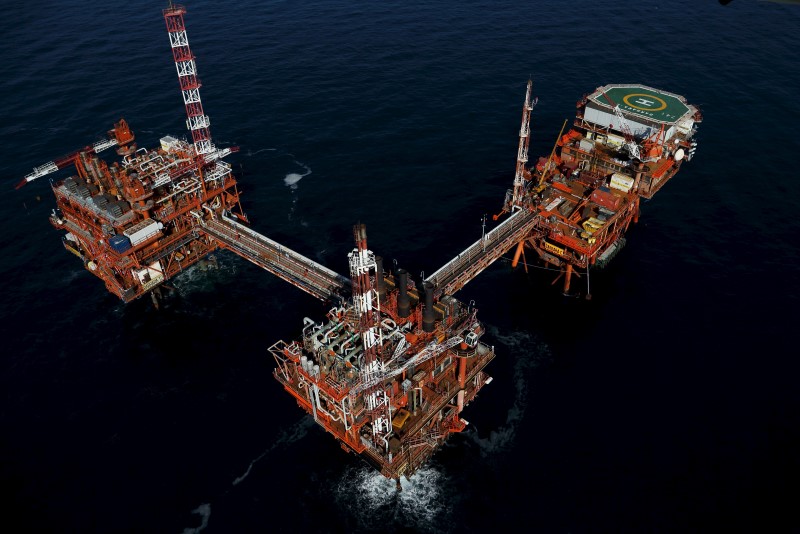
Investing.com-- Oil prices fell in Asian trade on Wednesday after industry data signaled an increase in U.S. oil inventories, while focus remained on diplomacy efforts by the U.S. to quell tensions in the Middle East.
Crude prices gained some ground in the prior session after Israel said it had killed Hashem Safieddine, the heir apparent to the late Hezbollah Leader Hassan Nasarallah, who was killed last month by an Israeli strike.
U.S. Secretary of State Antony Blinken held extended discussions with Israeli leaders this week over a potential de escalation in the conflict, while also pushing for more humanitarian aid in Gaza.
Focus also remained on more economic cues from top oil importer China, amid persistent concerns over slowing demand in the country.
Brent oil futures expiring in December fell 0.4% to $75.75 a barrel, while West Texas Intermediate crude futures fell 0.4% to $71.45 a barrel by 21:00 ET (01:00 GMT).
US inventories clock bigger-than-expected build- API
Data from the American Petroleum Institute showed that U.S. oil inventories grew 1.643 million barrels in the past week, compared to expectations for a build of 0.7 mb.
The reading usually heralds a similar trend from official inventory data, which is due later on Wednesday, and spurred some concerns that U.S. fuel demand was cooling.
Oil prices were also pressured by recent strength in the dollar, as expectations of smaller interest rate cut by the Federal Reserve boosted the greenback to its strongest levels since early-August.
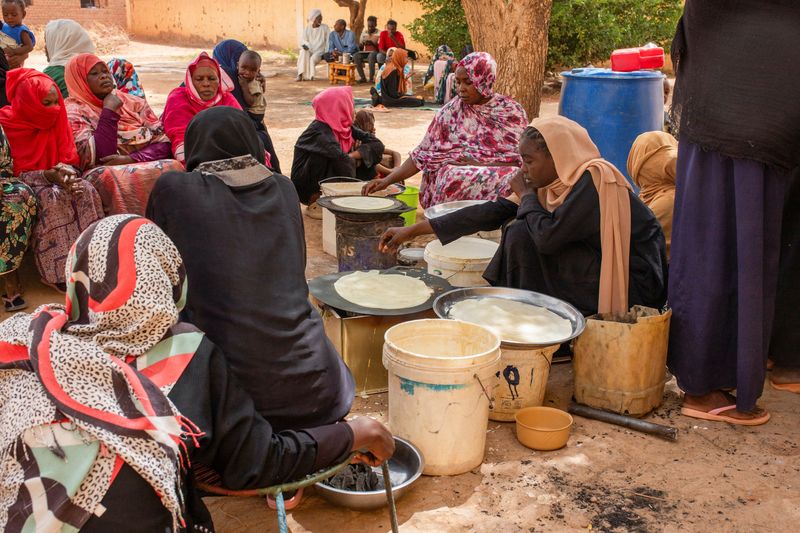
By Libby George
LONDON (Reuters) - Nearly half of Africa's citizens live in a country where governance has worsened over the past decade, as deteriorating security erodes progress, according to a new report.
The annual Ibrahim Index of African Governance report found that despite positive progress in 33 countries, overall governance was worse in 2023 in 21 countries, accounting for just under half of Africa's population, compared with 2014.
For several countries, including densely populated Nigeria and Uganda, the deterioration in overall governance had worsened over the second part of the decade, according to the report released by Sudanese-British billionaire businessman Mo Ibrahim's foundation.
"We can see really a huge arc of instability and conflicts and this deterioration, and security and safety of our people, is the biggest driver of deterioration and governance...putting everything down in general," Ibrahim told Reuters in an interview.
Ibrahim pointed to the coups in West Africa and war in Sudan, but said poor governance also fostered violence and instability.
"If there is deterioration on governance, if there is corruption, if there is marginalization...people are going to pick up arms," he said.
The report found that infrastructure - from mobile phone access to energy - and women's equality, were better in 2023 for roughly 95% of Africans.
Health, education and business environment metrics had also improved continent-wide.
But the report found that public perceptions on progress were grim, even when the corresponding governance dimensions showed progress; all public perception indicators, apart from those tracking women's leadership, declined.
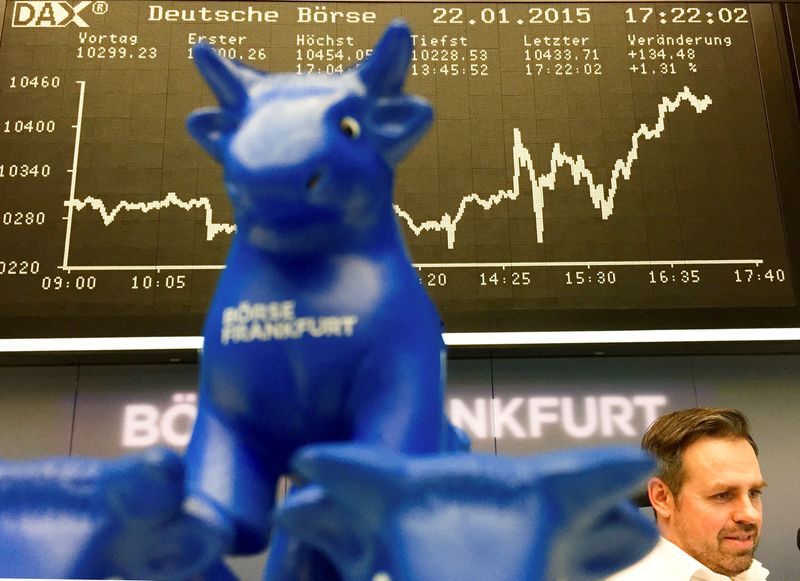
Investing.com - European stock markets traded in a mixed fashion Tuesday, as investors digested more third-quarter corporate earnings amid uncertainty over global growth and the future path of interest rates.
At 03:10 ET (07:10 GMT), the DAX index in Germany traded 0.5% higher, while the CAC 40 in France fell 0.1% and the FTSE 100 in the U.K. dropped 0.4%.
IMF to update growth forecasts
The European Central Bank cut interest rates last week, the central bank’s first back-to-back rate cut since 2011 amid concerns about economic activity in the region.
The International Monetary Fund will update its global growth forecasts later Tuesday.
IMF Managing Director Kristalina Georgieva last week flagged a lackluster outlook, saying the global economy was headed for slow medium-term growth, and pointing to a "difficult future", with continued weakness in China and Europe.
The European Central Bank is likely to cut its key interest rate down to its "natural" level between 2% and 3% but it may need to reduce it even further if a fall in inflation becomes entrenched, ECB policymaker Gediminas Simkus said on Monday.
HSBC consolidates into four units
In the corporate sector, HSBC (LON:HSBA) stock fell 0.4% after the banking giant named veteran insider Pam Kaur as its first female finance chief and announced a consolidation of the bank into four business units.
SAP (ETR:SAPG) stock soared over 5% after the German software company raised its full-year targets on strong cloud business in the third quarter, with artificial intelligence a key growth driver.
Mulberry (LON:MUL) rejected a second takeover proposal from the Frasers Group, with the British luxury brand saying the possible offer is "untenable".
InterContinental Hotels (LON:IHG) stock fell 2% after the group posted third-quarter room revenue growth, but still noted a subdued U.S. market and weakness in China.
Randstad (AS:RAND) sock rose 4% after the world's largest employment agency, reported quarterly profit slightly ahead of expectations as trading conditions stabilized across some of its markets despite a challenging macroeconomic environment.
Saab (ST:SAABb) sock rose almost 3% after the Swedish aerospace and defense company reported a rise in third-quarter operating earnings and affirmed its outlook for surging sales and profits this year.
The earnings deluge on Wall Street continues Tuesday, with results due from the likes of Texas Instruments (NASDAQ:TXN), 3M, General Motors (NYSE:GM), Lockheed Martin (NYSE:LMT), General Electric (NYSE:GE) and Verizon (NYSE:VZ).
Crude slips on demand worries
Oil prices dipped lower Tuesday as uncertainty over global demand growth, particularly from China, the world's top oil importer, continued to weigh.
By 03:10 ET, the Brent contract dropped 0.7% to $73.74 per barrel, while U.S. crude futures (WTI) traded 0.7% lower at $69.54 per barrel.
International Energy Agency head Fatih Birol warned on Monday that economic weakness in China will continue to stunt global oil demand in the coming years.
Birol’s comments -- made in an interview with Bloomberg -- came after both the International Energy Agency and the Organization of Petroleum Exporting Countries recently cut their demand growth forecasts on concerns over China.
The tensions in the Middle East remain in focus, as US Secretary of State Antony Blinken headed to the region seeking to revive talks to end the conflict which has seen traders attach some risk premium to crude prices, on the prospect of supply disruptions in the region.
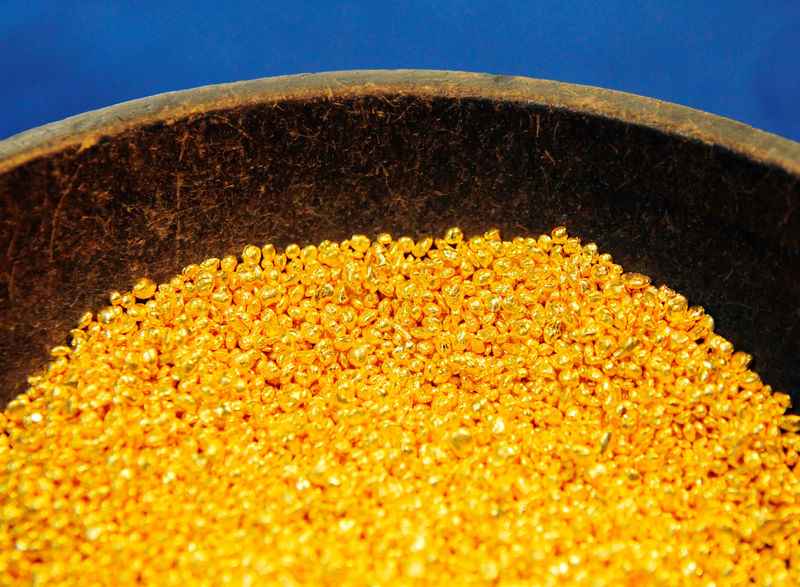
Investing.com-- Gold prices rose in Asian trade on Tuesday, steadying just below recent record highs as traders remained largely biased towards safe havens in anticipation of a tight 2024 presidential election.
This notion saw gold and other precious metals remain strong even as the dollar firmed amid growing expectations that the Federal Reserve will cut interest rates at a slower pace.
Spot gold rose 0.5% to $2,734.38 an ounce, while gold futures rose 0.4% to $2,748.40 an ounce by 00:12 ET (04:12 GMT). Spot prices hit a record high of just over $2,740 an ounce on Monday.
Gold near record highs on election uncertainty
Recent polls pointed to a close race between Donald Trump and Kamala Harris in the upcoming presidential election, which is about two weeks away.
Uncertainty over the outcome, and the sharp contrast between the stances of both candidates saw traders turn largely risk-averse in recent sessions, favoring safe haven plays. This risk aversion is expected to increase as the elections draw closer.
Safe haven demand was also boosted by fears of an escalation in the Middle East conflict, after an attempted drone attack on Israeli Prime Minister Benjamin Netanyahu. Israel was also seen maintaining its offensive against Hamas and Hezbollah, and is reportedly planning a strike against Iran.
Safe haven demand helped precious metal prices weather strength in the dollar, which rose to a near three-month high this week. The greenback was buoyed by increased bets on a slower pace of rate cuts by the Fed, which bode poorly for metal markets.
Other precious metals also rose on Tuesday. Platinum futures rose 0.4% to $1,019.60 an ounce, while silver futures rose 0.7% and remained close to a 12-year high hit on Monday.
Copper recoups some losses, China in focus
Among industrial metals, copper prices firmed on Tuesday, recouping some recent losses on the prospect of improving demand in top importer China.
Benchmark copper futures on the London Metal Exchange rose 0.7% to $9,638.50 a ton, while December copper futures rose 0.8% to $4.3943 a pound.
Copper was nursing steep losses over the past few weeks, as stimulus measures from China largely underwhelmed. The red metal fell on Monday even after the People’s Bank of China cut interest rates slightly more than expected.
But investors are holding out for more details from China on its plans to shore up economic growth with its recently announced stimulus measures. The National People’s Congress is set to meet later in October, and is widely expected to approve more fiscal spending to support growth.
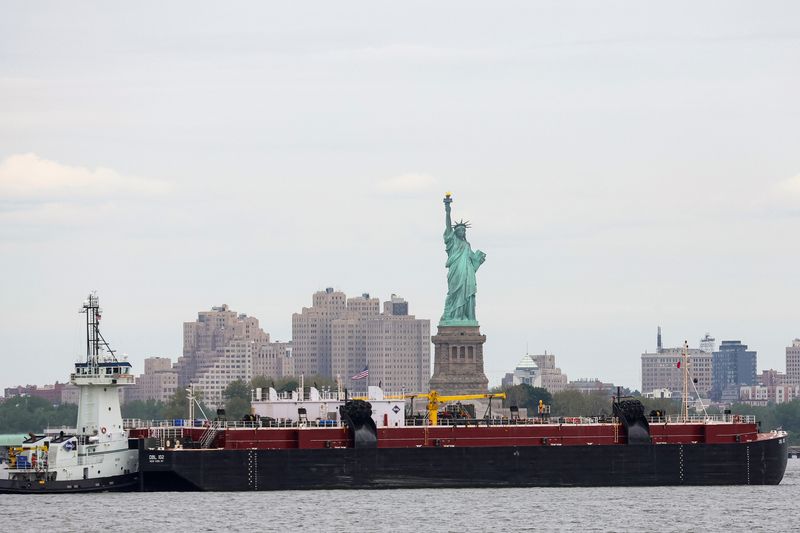
By Yuka Obayashi
TOKYO (Reuters) - Oil prices fell on Tuesday, paring the previous day's nearly 2% rise as the top U.S. diplomat renewed efforts to push for a ceasefire in the Middle East, and as slow demand in China, the world's top oil importer, continued to weigh on the market.
Brent crude futures for December delivery were down 26 cents, or 0.3%, at $74.03 a barrel at 0046 GMT. U.S. West Texas Intermediate crude futures for November delivery were 2 cents lower at $70.54 a barrel on the contract's last day as the front month.
The more actively traded WTI futures for December, which will soon become the front month, lost 23 cents, or 0.3%, to $69.81 per barrel.
Both Brent and WTI settled nearly 2% higher on Monday, recouping some of last week's more than 7% decline, with no letup of fighting in the Middle East and the market still nervous about Israel's expected retaliation against Iran potentially leading to a disruption of oil supply.
"Crude oil prices have been fluctuating in response to mixed news from the Middle East, as the situation alternates between escalation and de-escalation," Satoru Yoshida, a commodity analyst with Rakuten Securities.
"The market is expected to rise if there are clearer signs of China's economic recovery, bolstered by Beijing's stimulus measures and improvement in U.S. economy following interest rate cuts," he said. But gains are likely to be limited by persistent uncertainty about the overall global economic outlook, he added.
U.S. Secretary of State Antony Blinken headed to the Middle East on Monday seeking to revive talks to end the Gaza war and defuse the spillover conflict in Lebanon.
Israeli military forces besieged hospitals and shelters for displaced people in the northern Gaza Strip on Monday as they stepped up their operations, preventing critical aid from reaching civilians, residents and medics said.
Meanwhile, China cut benchmark lending rates as anticipated at the monthly fixing on Monday, following reductions to other policy rates last month as part of a package of stimulus measures to revive the economy.
The move comes after data on Friday showed China's economy grew at the slowest pace since early 2023 in the third quarter, fuelling growing concerns about oil demand.
China's oil-demand growth is expected to remain weak in 2025 despite recent stimulus measures from Beijing as the world's No. 2 economy electrifies its car fleet and grows at a slower pace, the head of the International Energy Agency said on Monday.
Still, Saudi Aramco (TADAWUL:2222) is "fairly bullish" on China's oil demand especially in light of the government's stimulus package which aims to boost growth, the head of the state-owned oil giant said on Monday.

Investing.com -- AI-darling NVIDIA's (NASDAQ:NVDA) stock closed at another new all-time high on Monday as it continued its meteoric rise. The stock closed up 4.14% to $143.71 and is now up 190.2% year-to-date.
Gains come after Taiwan Semiconductor Manufacturing (NYSE:TSM), which counts NVIDIA as one of its largest customers, said late last week that AI demand is "real" and "sustainable". TSMC said they now see the revenue contribution from server AI processors to more than triple this year, and account for mid-teens percentage of their total revenue in 2024.
In addition, large client Microsoft Corporation (NASDAQ:MSFT) is said to have increased its fourth-quarter NVIDIA GB200 orders by 3x from 400 racks to 1,450 racks, according to analyst Ming-Chi Kuo.
"Blackwell chip production ramp-up begins in early 4Q24," Kuo stated. "Considering yield rates and testing efficiency, estimated shipments are about 150,000-200,000 units in 4Q24, with significant growth projected at 200-250% QoQ to 500,000-550,000 units in Q1 2025."
Dell Technologies Inc (NYSE:DELL) is said to be ready to ship Blackwell servers as soon as November.
Wedbush analyst Dan Ives said they believe "overall AI infrastructure market opportunity could grow 10x from today through 2027 as this next generation AI foundation gets built with our estimates a $1 trillion of AI cap-ex spending is on the horizon over the next 3 years."
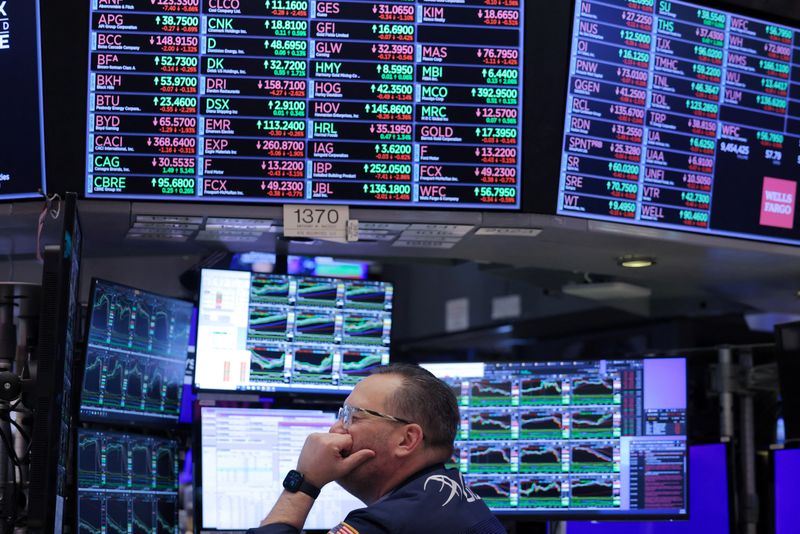
Investing.com-- The S&P 500 closed lower Monday pressured by rising Treasury yields as Fed speakers continue to echo the need for a more gradual pace of rate cuts, though a Nvidia-led climb in tech kept losses in check.
At 4:00 p.m.ET (2000 GMT), the Dow Jones Industrial Average fell 344 points, or 0.8%, the S&P 500 index dropped 0.2%, and the NASDAQ Composite gained 0.3%.
Treasury yields rise as Fed speakers call for modest cuts
The 2-year Treasury yield, which is sensitive to Fed policy, jumped 7 basis points to 4.025%, and the 10-year Treasury climbed above 4%, as investors appear more cautious over the rate cut path ahead.
The rise in rates come as Fed speakers caution on a fast pace of rate cuts ahead.
"Right now I see modest cuts over the next quarters," Minneapolis Fed President Neel Kashkari said.
Nvidia swells to record ahead of tech earnings
NVIDIA Corporation (NASDAQ:NVDA) jumped 4% to close at a fresh record high, taking its market cap above $3.5 trillion for the first time ever, keeping a lid on losses in the broader market as investors looked ahead to the start of big tech earnings.
Tesla (NASDAQ:TSLA) will be the biggest company to report this week, on Wednesday, with the electric vehicle maker’s earnings in close focus after the revealing of its robotaxi earlier this month largely underwhelmed.
Prints from a string of major chipmaking firms are also due this week, coming after earnings from industry bellwethers ASML (NASDAQ:ASML) and TSMC (NYSE:TSM) provided mixed cues on demand.
Texas Instruments (NASDAQ:TXN), Western Digital Corporation (NASDAQ:WDC) and Lam Research Corp (NASDAQ:LRCX) are among the majors chip stocks set to report, while in the broader tech sector, IBM (NYSE:IBM), is also due this week.
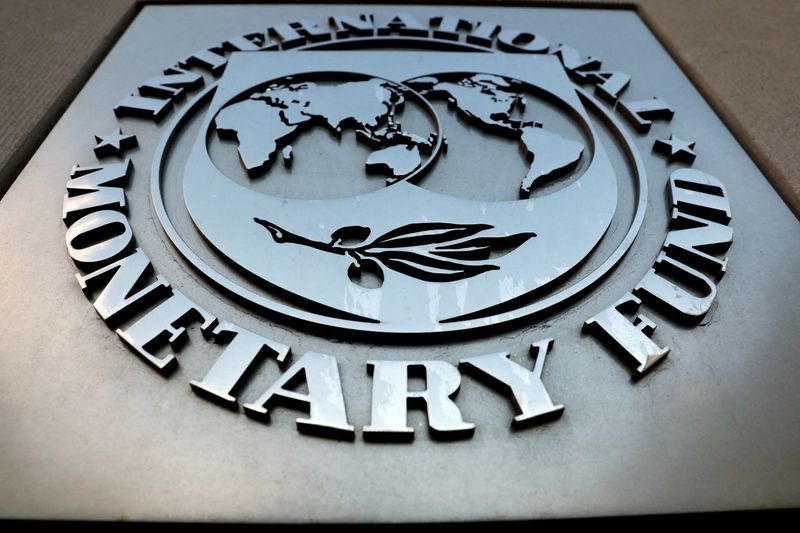
By David Lawder
WASHINGTON (Reuters) - Global finance chiefs will gather in Washington this week amid intense uncertainty over wars in the Middle East and Europe, a flagging Chinese economy and worries that a coin-toss U.S. presidential election could ignite new trade battles and erode multilateral cooperation.
The International Monetary Fund and World Bank annual meetings are scheduled to draw more than 10,000 people from finance ministries, central banks and civil society groups to discuss efforts to boost patchy global growth, deal with debt distress and finance the green energy transition.
But the elephant in the meeting rooms will be the potential for a Nov. 5 election victory by U.S. Republican presidential candidate Donald Trump to upend the international economic system with massive new U.S. tariffs and borrowing and a shift away from climate cooperation.
"Arguably the most important issue for the global economy - the outcome of the U.S. election - is not on the official agenda this week, but it's on everyone's mind," said Josh Lipsky, a former IMF official who now heads the Atlantic Council's GeoEconomics Center.
The election "has huge implications on trade policy, on the future of the dollar, on who the next Federal Reserve chair is going to be, and all of those impact every country in the world," he added.
U.S. Vice President Kamala Harris, the Democratic presidential candidate, is largely expected to continue the Biden administration's resumption of multilateral cooperation on climate, tax and debt relief issues if she wins next month's vote.

